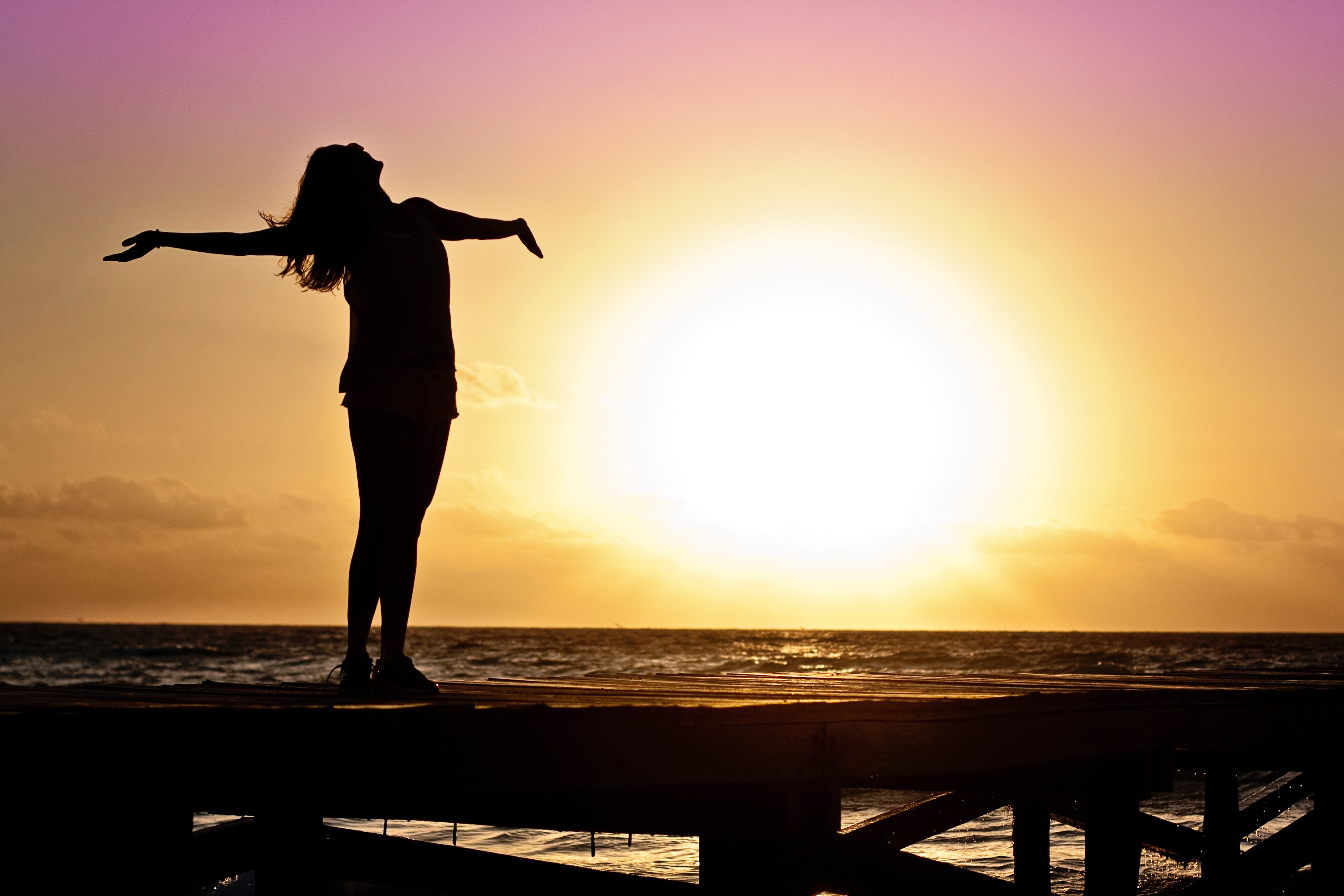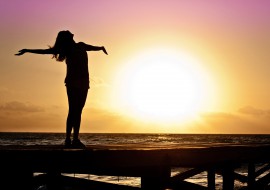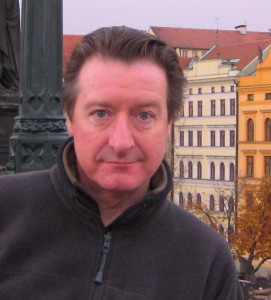
Covid 19 blog #11: you gave away your power. What comes next?
“Mr Duffy lived a few feet away from his body” -James Joyce Dubliners
“true spiritual realisation, authentic enlightenment, is found in the body and nowhere else” -Khenpo Tsultrim Gyamtso
Lockdown shocked me. It happened suddenly and seemed to arrive without warning. Today (16/05/20) marks nearly 9 weeks of lockdown with some lifting of restrictions (garden centres opening, more time out), yet the impact of what occurred in such a short amount of time expressed itself clearly to me today. I had paid a visit, cleaning bucket, bleach and binbag in hand to my (our) shared office. It was quite clear that nobody had been in for 9 weeks; the plants were dead and the cups and stationary, still out, looked as if the last person in the room had intended to be back very soon or had simply vanished, then that Sunday happened.
The swift way things changed, almost overnight is, in my experience, quite unique. What is also quite unique is the loss of freedom we have all endured (we have, and we are still enduring it-unless we see this as a long holiday) and our seemingly comprehensive inability to challenge the lockdown law. Dissent has, until very recently been scant, from an island which -I thought-prided itself on being bolshy to authority.
So, this new narrative, unfolding in real time before our eyes, has been horrible, tragic and fascinating. We have given away our power, literally; as a colleague very recently said to me with despair “I now feel powerless”.
Governments across the world have granted themselves what are often called Henry VIII powers. Named after the 16th Century Monarch, these are unprecedented powers with unchecked control. Silie Carlo of Big Brother Watch called these new powers “draconian”[1] The U.K. is not alone here; it is a practice which appears to be world-wide in its deployment.[2]
So new powers are brought in, fast. To save lives, fast. We lose our personal power, fast. To save lives, fast.
What’s wrong with this picture?
In 2007 the Canadian writer Naomi Klein published her ground-breaking book The Shock Doctrine[3]. The book received mixed reviews, but its gist is, I believe, most relevant today, when we see and experience the lockdown narrative being rolled out in front of us like a new orthodoxy. Klein’s central assertion is focussed on the political exploitation of national crisis’s (disasters or upheavals) that establish new, controversial and questionable policies, policies that are enacted while citizens are excessively too distracted (financially, physically, emotionally and psychologically) to engage and develop an adequate response, and effectively dissent or resist. We don’t see what is happening when our backs are turned-or up against the wall. We also don’t see what is happening when we are being paid to sit in the sun. Klein offers numerous examples from the South American economic disasters of the 1970s to the 2003 invasion of Iraq. While our back is turned, while our faces are looking elsewhere, while we are being paid to be distracted, governments further erode personal powers; hence the chip and pin approach to beating the virus by the NHSX.
So, in a few short (okay, long) months a new orthodoxy is created that we are hesitant to criticise; we have lost our power. Paranoia?
Another way of describing this is by using the concept of groupthink. It was Irving Janis in 1972 who rethought Orwell’s notion of newspeak into groupthink which “refers to a deterioration of mental efficacy, reality testing and moral judgement”[4]. According to Janis there are three elements to this:
- A group of people share a common view which is untested and without evidence
- Because this view is therefore subjective (i.e. held at the level of belief) they disown any new evidence or contradictory view
- To reinforce the new orthodoxy any and all dissent will not be tolerated; dissent is often described as dirty, filthy, disease ridden and morally disgusting (though officially their responses are skilfully polite)
You can easily see the groupthink narrative, supported by police, BBC and mainstream media in general, the NHS and then the public. Against this, we can feel powerless.
But wait: isn’t knowledge power? And can’t we use it to speak truth to power and change things? Both of these notions are simply naïve, in my opinion. They are naïve because knowledge and power are not the same by any means; knowledge is a tiny part of power (see below) and power cares little for truth; in fact most seats of power know “The Truth”, they just prefer the power of lies, they have no care for truth, it holds no energy or attraction for them[5].
There is, I think, a really good dramatic example of this from an episode of Game of Thrones[6]. Baelish is approached by Cersei, accompanied by four Lannister guardsmen, as he walks through the Red Keep. The missing Arya Stark weighs heavily on Cersei’s mind and she entreats Baelish to use his resources to find her. Littlefinger points to Varys, the Spider, as a better source of information. The conversation rapidly takes a nasty turn, as Baelish tries to press home the point that “knowledge is power” and that he knows all about the affair between Cersei and her brother Jaime (and, as a result, who sits upon the Iron Throne). Littlefinger is then lost in the smirking narcissism of his own cleverness, and is not paying attention to the look on Cersei’s face, who is furious. This is where Cersei, like all royals-like all of us-could lose her sovereignty; at this point she is several feet away from her body. But in a few seconds, she recovers herself; she breathes, her chest expends and contracts and she responds, embodied. Littlefinger, though, plows on: “Prominent families often forget a simple truth… knowledge is power.” Cersei has stopped raging and can’t let this smirking upstart think he’s got the better of her. She lets rip; but by now is fully at one with herself; it is like mindfulness in action. She orders her guards to seize Littlefinger and slit his throat. At the last moment she orders them to stop and release him. It’s a demonstration, she explains, that “Power is power.”
The point being, that knowledge (cognitive power) is useless without emotional power, social and economic power, but they are all useless without embodied power; the connection to the aliveness of our somatic living, our sovereignty.
This is also the power of presence. This is placing your attention to the here-and-now of embodied living. I direct my attention to the present, to being. What I put my attention onto or into is, in essence, my life. Not rooted or fixated in the vagaries of mind I can turn my attention to my embodiment, feeling the body from within. This is akin to waking up to a sunset or the shimmering ocean at noon, or indeed a vast sky of empty, embodied radiance. Traleg Kyabgon[7] writes that this is like “snow falling gently onto rocks and settling easily on the ground […] or waves crashing back into the stillness of the ocean.” This is dropping our story, like a tree drops its leaves in autumn. Does the tree feel fearful? No, it remains present in its authenticity: this is presence.
This contrasts with Foucault’s notion of docile bodies[8], where our cognitions and emotions are repositioned by authority to a depth that effectively impacts negatively on our nervous system; we are then driven into fight or flight-or freeze; fear drives us out of our bodies and reduces us into anxiety and self-protection. This could be called lockdown fear-lockdown reduction, or the new fear of coming out of lockdown and challenging the new orthodoxy. We’re groupthink sheep; docile bodies are easy prey.
It’s easy to get doctrine shocked and catapulted into a new orthodoxy when we’re disembodied; if we are so much in our thinking/emotional domain we are, quite literally giving the shockers a head start. Pun intended. Living a few feet away from our bodies is the Western malaise; lockdown adds another layer of alienation. Zoom et al is a potent way of relaying information and staying in touch, but it’s not touching, it’s merely a substitute for the real thing i.e. face to face embodiment. It’s continuing being touch deprived. It’s important-crucial-that we don’t think otherwise and come to live another few feet away from our bodies.
Thinking is good; cognitions and knowledge is good, finding an emotional connection is good; but the missing link is deepening into a somatic inquiry: how this feels in the body keeps you powerfully grounded, and like Cersei Lannister able to retain your true sovereignty. Peter A Levine[9] writes “embodiment is about gaining, through the vehicle of awareness, the capacity to feel the ambient physical sensations of unfettered energy and aliveness as they pulse through our bodies. It is here that mind and body, thought and feeling, psyche and spirit, are held together, welded in an undifferentiated unity of experience”
To take it a little further, Mariana Kaplan[10] writes “our own body is the sacred Bodhi Tree* that calls to us, inviting us to dwell deeply within its sanctuary and to stand unwavering in the face of the modern demons of self-hatred, self-denial, self-abandonment, shame, unworthiness, helplessness until the essence of our own embodiment reveals itself, and we reclaim our bodies as our rightful home”
What comes next for all of us, has to be a critical challenge to an authority(ies) that has never had-in peacetime in this country-so much power. We cannot have that power both misused, abused and directed to taking away our further freedoms, our personal power. It is a fact that we might not be able to stop shocking doctrines being put into place, but at the very least we need to be aware of what’s happening while it’s happening-which we won’t be if our heads are not in the right place; we must retain the power of our bodies and minds to enable this.
*under which the Buddha became enlightened
[1] https://bigbrotherwatch.org.uk/
[2] https://www.nytimes.com/2020/03/30/world/europe/coronavirus-governments-power.html
[3] http://tsd.naomiklein.org/shock-doctrine/
[4] Janis, Victims of Groupthink 1972
[5] See Sunday Times 17/05/20 “Trump doesn’t care who you are, he cares only that you like him. That’s why he’s in power” by Camilla Long
[6] https://www.youtube.com/watch?v=ab6GyR_5N6c
[7] Traleg Kyabgon Mind At Ease
[8] https://en.wikipedia.org/wiki/Discipline_and_Punish
[9] Peter A Levine In An unspoken Voice
[10] Mariana Kaplan Eyes Wide Open





Write a Comment